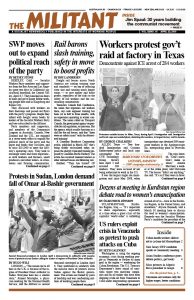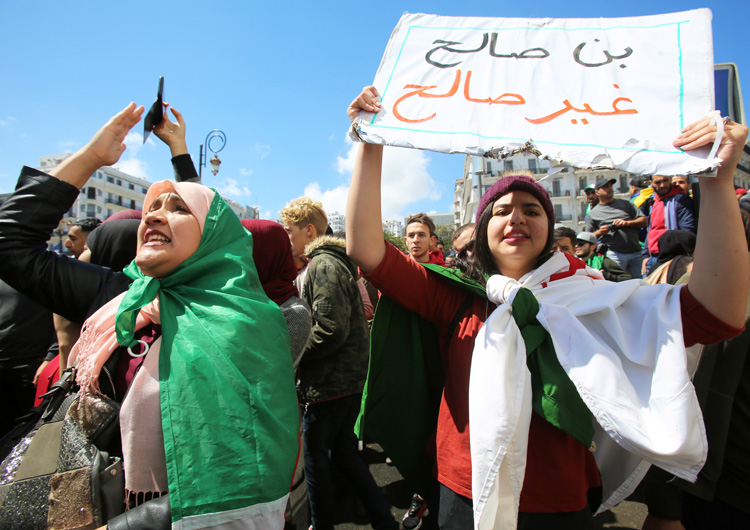In response to ongoing protests by hundreds of thousands of people over the past six weeks, Algerian President Abdelaziz Bouteflika resigned April 2. He had ruled the country for the past 20 years.
The protests began when Bouteflika, 82, who has rarely been seen in public since suffering a serious stroke in 2013, announced he would seek a fifth term as president. The scope of the actions reflect the pent-up anger over government corruption and the dire economic conditions working people face there.
On March 11, Bouteflika attempted to defuse the demonstrations by saying he would withdraw his run for reelection. But he also postponed the election indefinitely, seeking to keep his grip on. He said he wouldn’t step down until a new constitution was passed and a successor elected.
The demonstrations continued, and cracks developed in the military brass.
Three days after Bouteflika’s resignation thousands of demonstrators took to the streets again, calling for removal of his entire regime. “We now want the rest of the old guard to leave,” 25-year-old Kamel, who only gave his first name, told Al Jazeera. “We also want the corrupt businessmen to be judged. We have won one political battle, not yet the war.”
Toilers in Algeria had won their independence in a popular revolution against French colonial rule that culminated in 1962. More than 1 million people were killed and 300,000 children orphaned by the brutal French colonial regime before the Algerian people defeated them.
As the revolution deepened, workers and farmers there took power in a government led by Ahmed Ben Bella. It conducted a broad-reaching agrarian reform and organized working people to limit the power of the former French colonizers and Algeria’s native capitalists. Strong ties of collaboration were established with Cuba’s revolutionary government.
But this was cut short in June 1965 when Minister of Defense Col. Houari Boumedienne arrested Ben Bella and overthrew the workers and farmers government. Boumedienne was backed by then-Foreign Minister Bouteflika.
That revolution inspired a generation of young fighters in Africa and worldwide, like Malcolm X in the U.S., as today’s protests have inspired fighters in Sudan and elsewhere.


